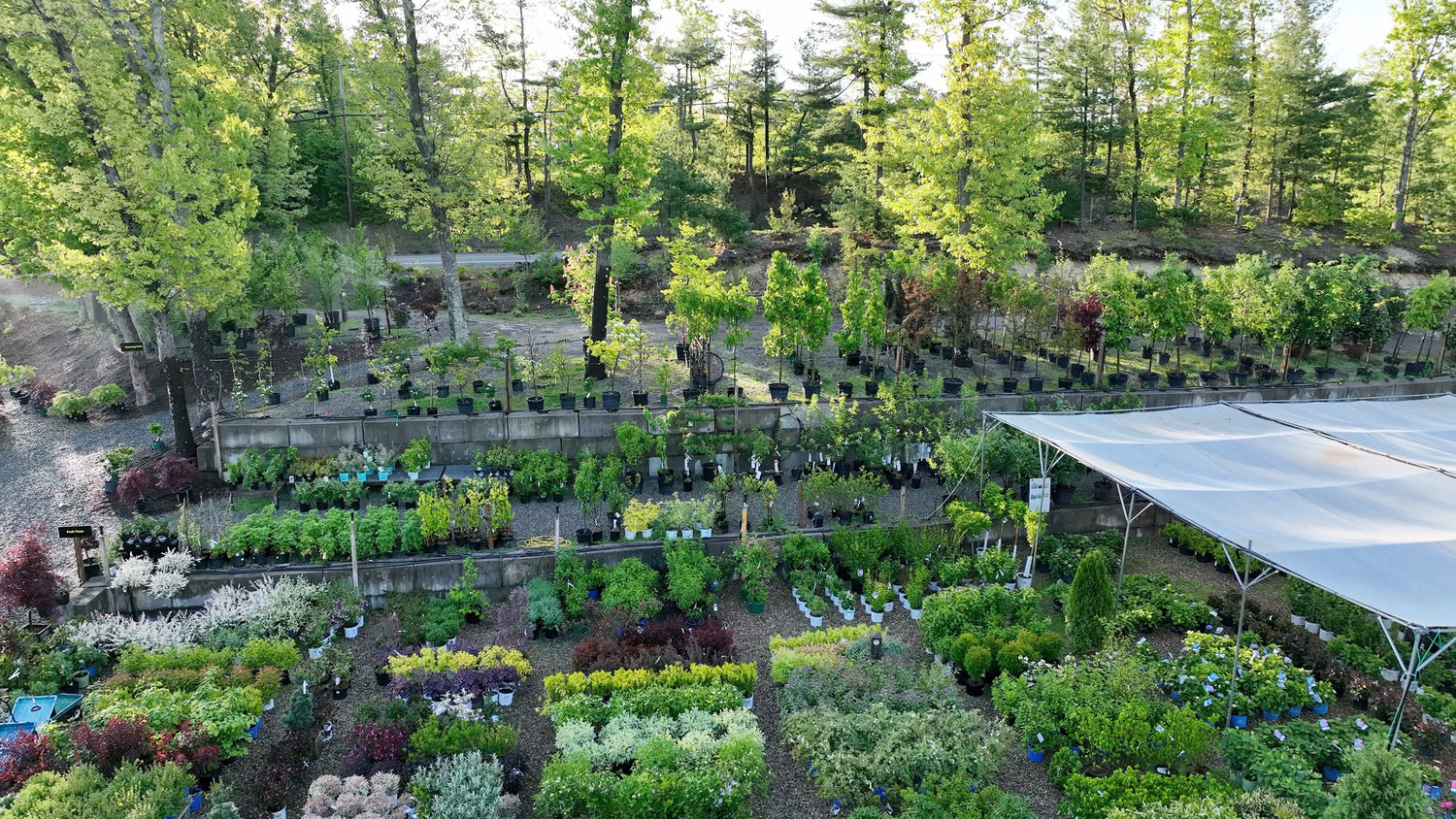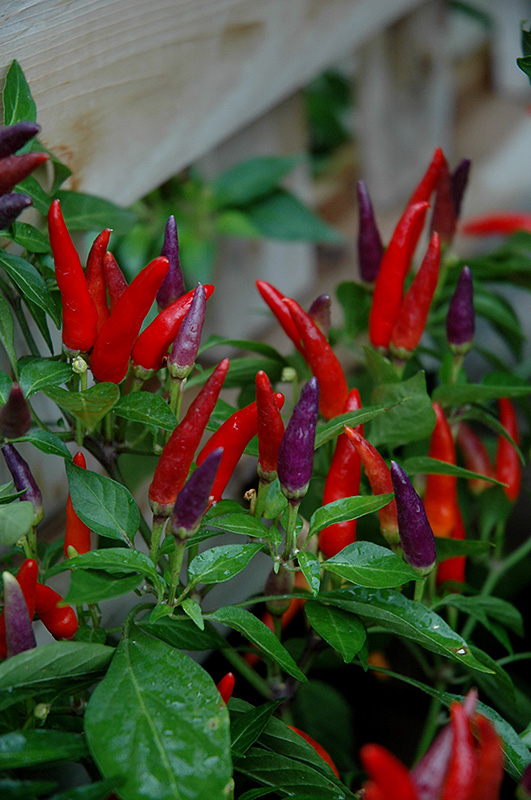Plant Guide
Sangria Ornamental Pepper
Capsicum annuum 'Sangria'
Height: 16 inches
Spread: 18 inches
Sunlight:
![]()
Other Names: Ornamental Chili, Chili Pepper
Description:
A stunning ornamental pepper, featuring narrow upright peppers that point upwards for maximum display, colors range from red, orange, and purple, often all at the same time; fruits eventually mature to red; a colorful indoor accent plant
Features & Attributes
Sangria Ornamental Pepper features subtle white star-shaped flowers dangling from the stems from late spring to mid summer. Its narrow leaves remain dark green in color throughout the year. The purple oblong fruit is edible and has a spicy taste and a crisp texture. Note that in general, it can be difficult to get plants to reliably produce fruit indoors; this may be a challenge best reserved for adventurous and experienced gardeners.
This is an herbaceous houseplant with an upright spreading habit of growth. This plant should not require much pruning, except when necessary to keep it looking its best.
Planting & Growing
When grown indoors, Sangria Ornamental Pepper can be expected to grow to be about 16 inches tall at maturity, with a spread of 18 inches. It grows at a medium rate, and under ideal conditions can be expected to live for approximately 1 years. This houseplant requires direct sun for optimal performance, and should therefore be situated in a room that gets bright sunlight for a good part of the day; it is not a good choice for rooms lit only by artificial light. It is very adaptable to both dry and moist soil, but will not tolerate any standing water. The surface of the soil shouldn't be allowed to dry out completely, and so you should expect to water this plant once and possibly even twice each week. Be aware that your particular watering schedule may vary depending on its location in the room, the pot size, plant size and other conditions; if in doubt, ask one of our experts in the store for advice. It is not particular as to soil type or pH; an average potting soil should work just fine.
There are many factors that will affect the ultimate height, spread and overall performance of a plant when grown indoors; among them, the size of the pot it's growing in, the amount of light it receives, watering frequency, the pruning regimen and repotting schedule. Use the information described here as a guideline only; individual performance can and will vary. Please contact the store to speak with one of our experts if you are interested in further details concerning recommendations on pot size, watering, pruning, repotting, etc.
-- THIS IS A HOUSEPLANT AND IS NOT MEANT TO SURVIVE THE WINTER OUTDOORS IN OUR CLIMATE --



